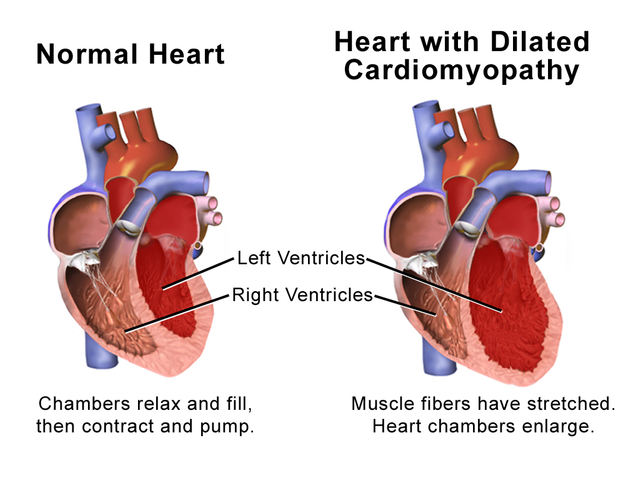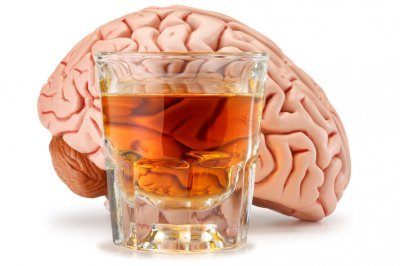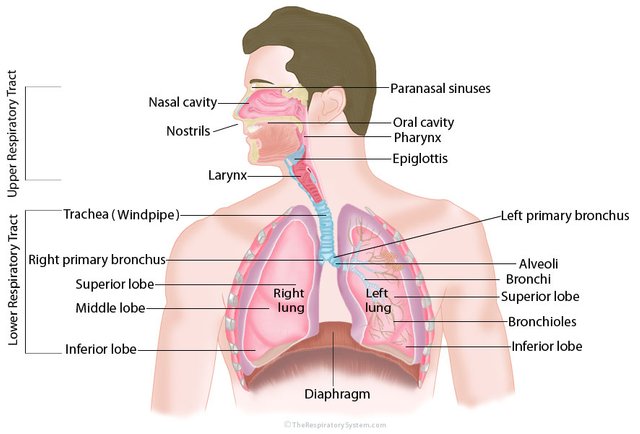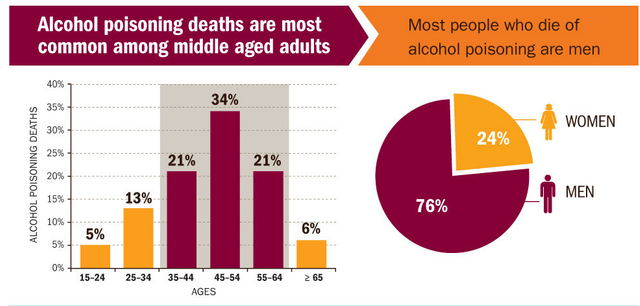BEAUTIFUL DANGERS OF ALCOHOL

Alcohol is the most widely-used drug in the world. According to the World Health Organization, more than three million people a year lose their lives due to their alcohol abuse. Alcohol (ethanol or ethyl alcohol) is the ingredient found in beer, wine and spirits that causes drunkenness.
Alcohol is formed when yeast ferments (breaks down without oxygen) the sugars in different food. For example, wine is made from the sugar in grapes, beer from the sugar in malted barley (a type of grain), cider from the sugar in apples, vodka from the sugar in potatoes, beets or other plants.
Alcohol is classed as a ‘sedative hypnotic’ drug, which means it acts to depress the central nervous system at high doses. At lower doses, alcohol can act as a stimulant, inducing feelings of euphoria and talkativeness, but drinking too much alcohol at one session can lead to drowsiness, respiratory depression (where breathing becomes slow, shallow or stops entirely), coma or even death.
As well as its acute and potentially lethal sedative effect at high doses, alcohol has effects on every organ in the body and these effects depend on the blood alcohol concentration (BAC) over time.
It is classed as a depressant, meaning that it slows down vital functions—resulting in slurred speech, unsteady movement, disturbed perceptions and an inability to react quickly.
As for how it affects the mind, it is best understood as a drug that reduces a person’s ability to think rationally and distorts his or her judgment.
Although classified as a depressant, the amount of alcohol consumed determines the type of effect. Most people drink for the stimulant effect, such as a beer or glass of wine taken to “loosen up.” But if a person consumes more than the body can handle, they then experience alcohol’s depressant effect. They start to feel “stupid” or lose coordination and control.

Alcohol overdose causes even more severe depressant effects (inability to feel pain, toxicity where the body vomits the poison, and finally unconsciousness or, worse, coma or death from severe toxic overdose). These reactions depend on how much is consumed and how quickly.
There are different kinds of alcohol. Ethyl alcohol (ethanol), the only alcohol used in beverages, is produced by the fermentation of grains and fruits. Fermenting is a chemical process whereby yeast acts upon certain ingredients in the food, creating alcohol.
For the Christian, drunkenness is a sin and not to be pursued in any way. Period. It’s not expected of a man or woman to be under the influence of alcohol and be without self-control. Both the Old and New Testament are crystal clear on the subject matter so the problem isn’t so much as to whether drunkenness is acceptable or not; the issue really is whether or not it’s permissible for Christians to drink in moderation. Is it okay to drink but not get drunk? Well, let’s get on with it.
Nowhere in scripture are we told that drinking alcohol is sinful. However, there’s a lot of admonition on how we handle alcoholic beverages. King Solomon described wine as a “mocker” and a “brawler” because of the havoc it wreaked on people’s marriages, families, friendships etc. He was right. Alcohol is very addictive and can have disastrous effects on us. It has the potential to impair one’s judgment often leading to unrestrained behaviours. Already, it’s a struggle to keep ourselves in check even under perfectly sane conditions. MORE GRACE! looking up to God. Throwing alcohol into the mix, to me, is like trying to quench fire with petrol. Many people have suffered serious health problems, relationship troubles and premature deaths due to excessive drinking. In US alone, nearly 88,000 people die every year from alcohol-related incidents .
Drinking alcohol is a very hot topic among Christians that has been argued and discussed for thousands of years. God warns us to not be drunk and describes certain situations where someone should not drink, but the Bible never says that alcohol is wrong. Since the Bible doesn't absolutely forbid drinking alcohol, whether or not someone should drink is a personal decision to make for yourself.
EPHESAINS 5:18
:And be not drunk with wine, wherein is excess; but be filled with the Spirit
Repeated and regular high alcohol consumption can cause serious long-term health consequences, including: liver disease. mouth, throat and oesophageal cancer. increased risk of bowel breast and liver cancer. A few of the consequences of alcohol will be discussed below.

The effect of alcohol on your heart is complex. For some people, even moderate alcohol use carries major risks. Research is ongoing to clarify the relationship of alcohol and heart disease. Your heart is a pump that keeps blood moving around your body. It delivers oxygen and nutrients to all parts of you, and carries away unwanted carbon dioxide and waste products.
When your heart, the arteries around your heart or your other blood vessels are damaged, this pumping system doesn’t work properly. Long-term excessive drinking increases your risk of developing problems with your heart. Drinking within the low risk guidelines is unlikely to cause damage and, if you’re over 45, may help protect the heart. It’s important to remember that you don’t need to drink much above the lower risk guidelines to undo any protective effect and start causing harm even if you are in this group.
There are lots of different types of heart disease. Coronary heart disease is the most common type of heart disease and can lead to sudden death from a heart attack. It’s caused by the gradual build-up of fatty deposits on the walls of the arteries in your heart (the coronary arteries) on which blood clots may form. These deposits cause the artery to narrow, and make it harder for it to supply your heart muscle with the oxygen and nutrients which it needs to function normally.
Heart attacks are the most common result of coronary heart disease. Someone has a heart attack when their coronary arteries become blocked. This stops blood supply to the heart’s muscles meaning it can’t get the oxygen it needs. Starved of oxygen, the heart can’t pump properly, and in severe cases it may effectively stop beating altogether which can kill you. Damage to the heart muscle can lead to heart failure – when your heart can no longer pump blood around your body normally. This leads to symptoms such as swelling of the ankles and shortness of breath which affect you for the rest of your life and often become progressively worse. Although there are drugs that can help limit the impact of heart failure, there isn't a cure at the moment.

Alcohol is meant to be enjoyed responsibly; however, alcohol consumption can cause individuals to lose their ability to think responsibly.
Alcohol is associated with a host of familiar cognitive changes, such as a loss of inhibitions, confused or abnormal thinking, and poor decision-making. Recreational alcohol users generally recover from its effects without any long-term problems. However, even short-term loss of control over normal mental functioning can result in legal and personal troubles that would likely not have occurred if alcohol were not involved. Alcohol consumption continues to maintain a foothold so strong in American culture that it is nearly impossible to imagine life without it.
While it is true that alcohol can initially perk people up and even help them to socialize at a party, alcohol is a central nervous system depressant. The depressant effects of alcohol are witnessed when people who have been drinking have slurred speech and poor limb coordination that prevents them from being able to walk properly. Although these outward signs of intoxication can be easily observed, it isn’t as clear how alcohol acts on a deeper level inside the body.When considering the negative consequences of alcohol, people often think of what can happen in public, such as getting into a car accident or an alcohol-induced altercation. However, people play a game of roulette with themselves when they drink, especially when they drink heavily, because the effects of alcohol on the brain are uncertain both in the short-term and long-term. If other drugs are added to the alcohol consumption, the risks become more serious.

Alcoholic lung disease is disease of the lungs caused by excessive alcohol consumption. The term 'alcoholic lung disease' is not a generally accepted medical diagnosis, and "the association between alcohol abuse and acute lung injury remains largely unrecognized, even by lung researchers".
Chronic alcohol ingestion impairs multiple critical cellular functions in the lung. These cellular impairments lead to increased susceptibility to the serious complications from lung disease. Recent research cites alcoholic lung disease as comparable to liver disease in alcohol-related mortality. Alcoholics have a higher risk of developing acute respiratory distress syndrome (ARDS) and experience higher rates of mortality from ARDS when compared to non-alcoholics.
Alcohol abuse can cause a susceptibility to infection after major trauma to the lungs / respiratory system. It creates an increased risk of aspiration of gastric acid, microbes from the upper part of the throat, decreased mucous-facilitated clearance of bacterial pathogens from the upper airway and impaired pulmonary host defenses. This increased colonization by pathogenic organisms, combined with the acute intoxicating effects of alcohol and the subsequent depression of the normally protective gag and cough reflexes, leads to more frequent and severe pneumonia from gram-negative organisms. Defects in the function of the upper airway's clearance mechanisms in alcoholic patients have been detected.

It is both common sense and a corroborated finding of scientific research that alcohol affects emotions. Alcohol is frequently exploited as a social lubricant, and improvement in social interaction is one of the most commonly reported motives for occasional alcohol consumption in social drinkers.
Indeed, moderate alcohol consumption has been found to enhance positive emotions in social drinking contexts. However, alcohol intake can also facilitate aggressive behavior, which might be due to negative effects of alcohol on impulse control. As such, alcohol has repeatedly been found to modulate behavior associated with both positive and negative emotions according to social context.
However, alcohol intake can also facilitate aggressive behavior, which might be due to negative effects of alcohol on impulse control. As such, alcohol has repeatedly been found to modulate behavior associated with both positive and negative emotions according to social context.
In this review, we focus on expressions of emotions, due to their prominent role in social interaction. Facial expressions of emotions are an essential complement of verbal communication, as they validly reflect the subject’s emotional state and thus convey the emotional content of a message. Simulated facial expressions of emotions can be distinguished from those of truly experienced emotions, due to subtle differences in patterns of facial activity.

Mainly bringing together recent alcohol data releases, the overall trends remain suggesting stabilisation of overall consumption and harm measures such as alcohol-related hospital admissions. As before though, significant variations exists between age groups, gender, regions, income and other factors. The measures used are also important as the 'broad' measure of alcohol-related admissions suggest an increase on last year, whilst the 'narrow' measure suggests a fall for the first time. Meanwhile, the final release of the Opinions and Lifestyle Survey, focusing on drinking in the last week, will no longer continue. These are just a few of the dangerous effect of alcohol and should be reduced if not totally stoppedso as to enjoy good health for "health they say is wealth "
Alcohol is not an ordinary commodity. While it carries connotations of pleasure and sociability in the minds of many, harmful consequences of its use are diverse and widespread
From a global perspective, in order to reduce the harm caused by alcohol, policies need to take into account specific situations in different societies. Average volumes consumed and patterns of drinking are two dimensions of alcohol consumption that need to be considered in efforts to reduce the burden of alcohol-related problems. Avoiding the combination of drinking and driving is an example of measures that can reduce the health burden of alcohol.
Worlwide, alcohol takes an enormous toll on lives and communities, especially in developing countries and its contribution to the overall burden of disease is expected to increase in the future. Particularly worrying trends are the increases in the average amount of alcohol consumed per person in countries such as China and India and the more harmful and risky drinking patterns among young people.
National monitoring systems need to be developed to keep track of alcohol consumption and its consequences, and to raise awareness amongst the public and policy-makers. It is up to both governments and concerned citizens to encourage debate and formulate effective public health policies that minimize the harm caused by alcohol.

Thanks for reading. Kindly resteem and upvote this post.
Hello! I find your post valuable for the wafrica community! Thanks for the great post! @wafrica is now following you! ALWAYs follow @wafrica and use the wafrica tag!